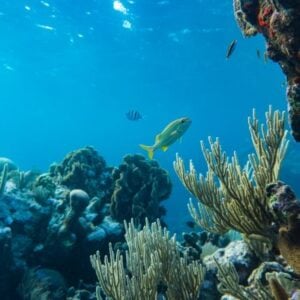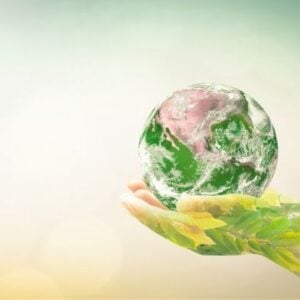The International Union for Conservation of Nature (IUCN) marked this year’s Africa Day of Seas and Oceans by aligning with the African Union and regional partners to celebrate the continent’s marine heritage and recognize the communities that protect it. This year’s observance also signifies the conclusion of the Africa Decade of Seas and Oceans (2015–2025), a pivotal period for fostering commitments to sustainable blue economies and ocean conservation. A series of webinars beginning in August will help build African capacity to implement the Biodiversity Beyond National Jurisdiction (BBNJ) Agreement, with topics covering the agreement’s provisions, preparatory processes, and its relevance to biodiversity, climate, and ocean policy.
The Great Blue Wall Initiative remains central to Africa’s ocean strategy, addressing biodiversity loss, climate change, and pollution across the Western Indian Ocean. Backed by IUCN and regional stakeholders, the initiative promotes regenerative seascapes that support sustainable blue economies, ecosystem restoration through nature-based solutions, and strong regional governance. It aligns with the 2023 Moroni Declaration, which calls for enhanced ocean-based climate action and regional collaboration.
Several projects are driving these efforts. The WIO Coastal and Ocean Resilience (WIOCOR) project, supported by the French Global Environment Facility (FFEM), provides microgrants for seagrass restoration and adaptation strategies in Comoros, Kenya, Madagascar, Mozambique, and Tanzania. A regional seagrass status report is also being developed with WIOMSA. ISLANDPLAS is working with island nations to combat plastic pollution using circular economy approaches, while national partnerships are being established to assess plastic flows and promote innovative local solutions.
The Pamoja Tuhifadhi Bahari Yetu project, funded by the European Union and implemented by WWF-Tanzania and partners, focuses on conserving Tanzania’s marine ecosystems while improving local livelihoods. Similarly, the ReSea Project, led by IUCN and Mission Inclusion, aims to boost community resilience to climate change in the Western Indian Ocean. In its first year, ReSea reached over 8,200 people—over half of them women—and trained 130 individuals in nature-based climate adaptation solutions. It also strengthened inclusive governance by integrating women’s rights organizations and ensuring gender-balanced leadership across five seascapes.
Additionally, IUCN’s Voices Beyond Blue Campaign supported screenings of the documentary Ocean with David Attenborough across countries like Kenya, Seychelles, and Mauritius. These events engaged stakeholders from governments, civil society, and youth communities to raise awareness about marine biodiversity, particularly in the High Seas, and encouraged collective ocean protection efforts.







